While Stardock Entertainment has had great success with their more traditional 4X titles, Fallen Enchantress and its follow-up Legendary Heroes, they still had a desire to create a new fantasy game that would feel fresh and exciting. Their 2015 release, Sorcerer King, attempts to do just that by mixing and matching elements of 4X with those of strategy RPG. With an increased interest in storytelling, a narrower scope, and a well-defined antagonist, it is clear that this is a different animal than their prior titles.
I previewed the game last December and had some concerns, but it was still far from finished. Now that it’s been out for a while and received its first big 1.1 patch, it’s time to see how it compares to not only its older brothers, but the genre as a whole.
An Adventure Built for One
With your rival kingdoms in ruins, mere remnants of their former glory, you are not tasked with managing multiple fronts and diplomatic relationships as you are in a traditional 4X. Instead, the titular Sorcerer King is your only rival throughout the game. Fortunately for you, he’s far too ignorant and egotistical to realize it. If you’ve watched a lot of television or movies, you’re likely familiar with the trope at use here. Sometimes villains, for a variety of reasons, fail to finish off a hero despite having ample opportunity. Your kingdom, reduced to a single city, is of no consequence to such a powerful entity.
Your mission throughout is to maintain the appearance of obedience while secretly sabotaging his efforts to destroy the mana crystals of the world and prevent his seemingly inevitable victory. This is done by building up your small empire, leveling up your hero (or heroes), and gathering new equipment and crafting materials until you are ready to take him and his lieutenants on.
A Light-hearted Romp
The central philosophy and core concepts behind the game reduce or completely remove many of the complexities found in traditional 4X games. While the core elements of 4X strategy are present, the number of strategic decisions to be made, both in number and significance, are vastly reduced. This leads not only to an easier point of entry for genre newcomers, but also a shorter, easier, and more streamlined experience.
There is a definite emphasis on RPG and storytelling elements in a way not often seen in its competitors. For example, nearly every location of interest on the map features a miniature “choose your own adventure” decision tree. There are no right or wrong answers to most of these, but the results will vary depending on which you choose. For example, how you choose to handle the problematic bards, the wicked necromancer, or the tavern murder are up to you. There is most often an answer that seems like the “right” one, but the game will reward you regardless of your choice with a suitable reward. The game also presents behavior modifications, such as Cruelty or Bravery + 1, which can have an impact on future conversations and random occurrences. None of the rewards or penalties feel heavy handed or game changing, so this system is generally playful and open to exploration.
While I can accept that fact that not every game needs to take itself seriously, I do have some issues with both the writing and direction this game takes. I found the writing throughout to be uninteresting, inconsequential, bland, and in some cases, ridiculously silly. In addition, I found that many of the decisions and dialog choices broke any sense of immersion I had with the game. When my character is forced to make ridiculous and rude comments in order to proceed down the “correct” path, I find I no longer care about the story the game is trying to tell. When a game’s key feature promises a sense of adventure, I expect to be engaged and this game’s writing failed to ever do so. However, your taste in writing may differ from mine, so this may or may not be an issue for you.
Streamlined Options
While the game presents both a new game and campaign option, it is fair to say there is essentially only one mode of play on offer here. The campaign mode is a preset and gated map that most games would call a scenario. While it does feature an intro cinematic, it differs very little from the gameplay experience on offer in new game mode and uses the same victory conditions and concepts.
When starting a new game, the first thing you do is choose a sovereign. There are six available, and each has access to different spells throughout the game and unique sovereign skill trees that act as pseudo tech trees.They also feature a unique ability and different hero starting parties, although these can be customized to your liking.
Regardless of your choice, you always run the same kingdom of Athica. There is no choice of Empire or Kingdom as seen in prior titles in this setting. In every game of Sorcerer King, your faction units and buildings are the same. However, it is worth noting that some sovereigns may present the opportunity to unlock new buildings and units as you level them up.
A Smaller Scale
Players are often pushed to expand their empire rapidly in 4X games. When multiple empires are spreading out and claiming territory, it is important to keep up. With more cities they will out produce you, out research you, and eventually surround you. Legendary Heroes dealt with that by making only certain tiles fertile and eligible for settlement, and this game follows suit. That said, it is perfectly reasonable to expect to achieve victory with only one or two cities in total. Due to the lack of rival empires and the passiveness of neutral creatures, there is little reason to spread out. In fact, there is little reason to even defend your capital until late into the game.
There are a lot of buildings to construct, although their importance will vary from game to game. For instance, I have found that lacking metal, crystal, horses, and other resources is not really an issue. While having these resources and constructing certain buildings can give you access to better units, it is possible to get similar units easily using the locations that are all over the map. Many of these include simple quests that with the click of a button will provide you with new units with no investment of resources or skill requirements.
Sorcerer King is a game that strongly encourages a “stack of doom”. That is to say one powerful army including your primary hero, perhaps a second hero you’ve recruited or rescued, and a few decent units is all you need to achieve victory in even the highest difficulty. I’ve found this reduces the need to construct many units at all, which again reinforces the fact that city and empire management is of minimal importance. To keep your stack alive is key, and to do this you will use two systems: leveling and crafting/enchanting.
Powering Up
Leveling your heroes is important due to the fact that their abilities can make them tremendously powerful. Each hero has their own unique skill tree, similar to how each sovereign has their own unique tree, and leveling them up so you can unlock these traits is the best way to achieve victory. For instance, I was able to obliterate many enemies before they could even take a turn using a couple of the dwarven hero’s abilities in tandem. This includes the final boss battle with the Sorcerer King’s own army. Once his skills were honed, I could win each battle using the same tactic and a few clicks of the mouse.
Crafting and enchanting go hand in hand in allowing your units, especially your heroes, to ascend from greatness to godliness. Equipping your heroes with powerful items and increasing their initiative can lead to many lopsided battles. Through the use of enchanting it is possible to give your units massive amounts of experience gain early on when the enemies are weak. Later on, these can be swapped out for more powerful enchantments that grant speed, damage, and health bonuses. Both systems use items you collect from chests littered about the map as well as quest rewards. The crafting system allows you to collect recipes and create better items and scrolls. While only heroes can use weapons/shields, every unit in your army can equip armor and jewelry. You can then enchant these items using leftover ingredients that buff them up further.
In a nutshell, this process is what you’ll follow throughout each game you play. Level up your hero, strengthen his army with new units, craft or find equipment and enchant it, and continue completing quests until the army is unstoppable. Spells and spell research are often of minimal importance. Beyond a simple healing spell and perhaps a basic summon spell, I typically find myself prioritizing the tireless march spell so I can get my army moving faster on the map. Spell damage feels weak in comparison to the damage your well-equipped units can do, and this makes a lot of spells feel unnecessary. I also found the mage hero to be weak for the same reason.
Interaction with other neutral factions is possible on a basic level, but is also wholly unnecessary to achieve victory. Diplomacy consists primarily of communicating through small dialog trees and running errands. If you manage to gain enough favor with them they will find ways to help you from time to time. If you don’t help them they may eventually help the Sorcerer King instead. Either way though, you can end up powerful enough that their role is insignificant.
Admittedly, it is fun to watch your army grow from nothingness to all-powerful, but over time I found this simple formula grew tiresome. While I can see the appeal of the system, and do think it creates a great entry level experience for newcomers, it doesn’t really tax my mind. It’s more of a kick back and enjoy the show type of experience than a stressful one.
Nothing To Worry About
I’ve found Sorcerer King to be one of the easiest 4X games I’ve played in recent years. The highest difficulty does present some challenge, but this is only due to the absolutely massive health gain given to nearly all enemy units. For me, it simply creates a more grindy experience rather than a better one. Hard or Expert offer a better experience without as much needless grinding.
The biggest issue with the difficulty of this game is the Sorcerer King himself. Even on the highest ridiculous difficulty, the Sorcerer King is incapable of making basic conclusions. For instance, the fact that I’ve cleared several of his followers’ lairs off the map should clue him in that I just might not be working for him anymore. Better yet, killing one of his 2 key lieutenants should be an immediate red flag, but for the Sorcerer King it is simply water under the bridge. While yes, he does approach you to ask about what’s going on, it is easy to explain it away as a misunderstanding without repercussion. I don’t know, perhaps I am supposed to choose the nonsensical answer and blow my cover when questioned, but I have a hard time deliberately choosing a worse answer.
Since the main antagonist isn’t concerned about you, most of the neutral armies aren’t either. They will wander around the capital a bit, and will attack your army if left nearby, but for the most part they have little impact on your plans as a whole. It isn’t until very late in the game that your city might face a threat from the Sorcerer King when he’s really angry. Until then, you don’t really need any sort of defense garrison to stay alive.
One way to increase difficulty is to increase the rate that the Sorcerer King’s doomsday meter grows. The default speed is very slow. I’ve not tried beating the game with the highest speed set on ridiculous difficulty, but I’m not anxious to try for the same reason that I don’t play other 4X games with a timed mode.
Final Thoughts
Nearly all of the issues and concerns I had in my preview last December have held true in the final product. Unit variety is still lackluster on both the player and Sorcerer King sides. The Sorcerer King’s behavior is still very timid and unresponsive to the player’s actions. The victory condition requirements to find both lieutenants still plays out like finding two needles in a giant boring haystack. Once you know you can win the game, it is incredibly frustrating to have to spend turn after turn searching the map for these two armies.
There are other bugs and issues I haven’t mentioned either. For instance, every time the AI decided it wanted to trade with me in the campaign, it would have every single nation I’d encountered offer a trade, one after the other. This amounted to 7 or 8 trade requests back to back before I could continue my turn. The tactical combat still suffers from the same lack of pre-combat unit placement and unlimited missile weapon range present in its older brother Legendary Heroes. Watching the AI kill off your hero with an arrow as soon as combat starts is still an issue, and there’s no excuse for this design shortcut as other games have done a much better job with aspects of tactical combat such as this in recent years.
I’ve had a hard time coming to grips with my feelings about Sorcerer King. It’s not that it is a bad game or unpolished for the most part, but I don’t feel it stands out in any particular way either. While I enjoy it for a while when I play it, I don’t love it. It doesn’t call me back to it like other games do. There are simply other titles in the genre that I would rather play whether I’m in the mood for a deep strategic experience or a fun tactical one. Every game of Sorcerer King feels the same to me.
At a lower price point, it would be a good candidate as an entry-level 4X-like game for those interested in the genre. Its leisurely pace and lack of consequences allows players to experiment and learn as they go in a way many other games don’t allow. It also moves briskly as long as you play at less than the highest difficulty and allows a complete game to be played in hours rather than days.
|
Space Sector score:
6.5/10
fair
|
|---|
| The Good: – Streamlined experience offers a good introduction to the genre – Offers an abbreviated playtime while still offering a strong sense of progression – Crafting and enchanting systems are well implemented, easy to use, and rewarding – Sovereigns and heroes all have almost entire unique skill trees |
| The Bad: – Increasing difficulty leads to increased grinding rather than challenge – Sorcerer King is uninteresting to interact with and feels disengaged – Suffers from lack of unit variety on the player and the Sorcerer King side – Every game has the same goal and overall feel leading to a feeling of repetitiveness |
Keith Turner, also known as aReclusiveMind here on SpaceSector, has been an avid gamer ever since he first laid his hands on a Commodore 128 in the mid 1980s. He enjoys multiple computer game genres, but his primary interests are in deep strategy games, 4x games, rpgs, and action rpgs. He enjoys writing and hopes to contribute with additional reviews, previews, and informative AARs to the community. See all Keith’s posts here.
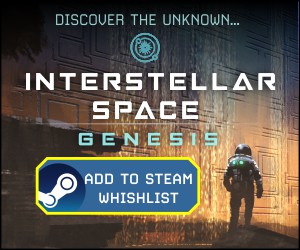
15 Comments
Related Articles:
- Sorcerer King – Early Access First Impressions
- Fallen Enchantress: Legendary Heroes – The Dead World DLC
- Eador: Masters of the Broken World Released
- Worlds of Magic: Early Access Coming Soon
- Worlds of Magic: Master of Magic Spiritual Successor Aspirant

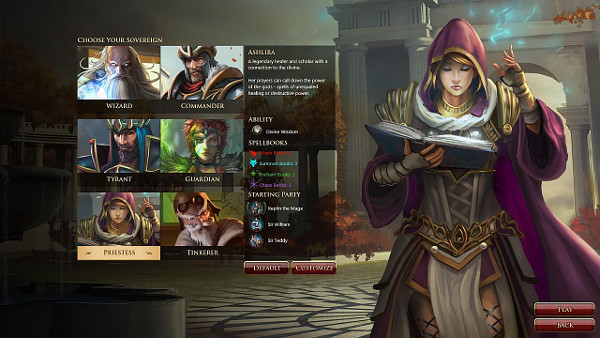
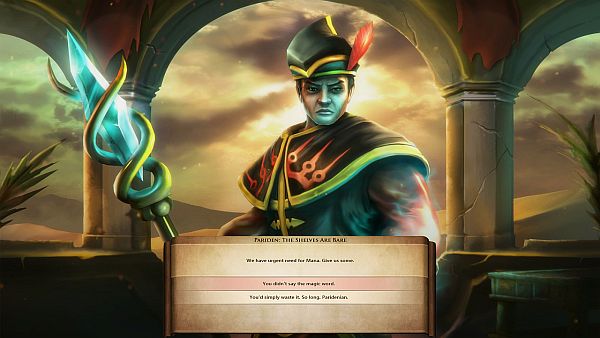
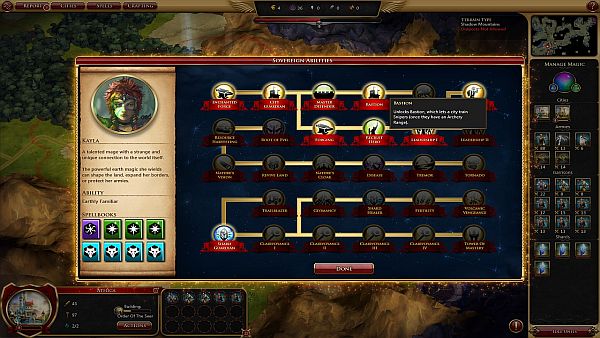
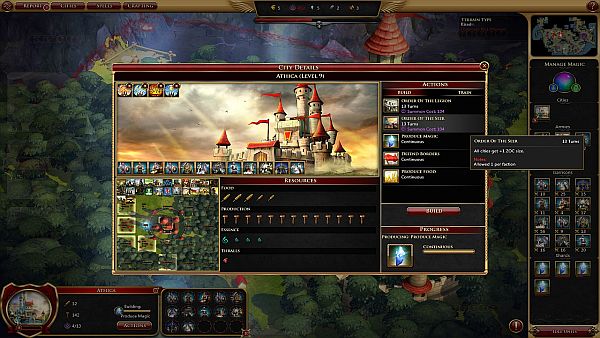
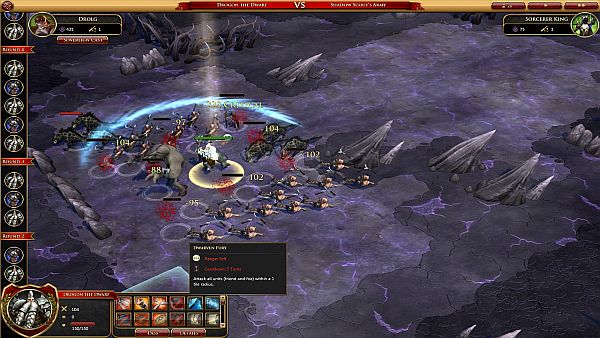
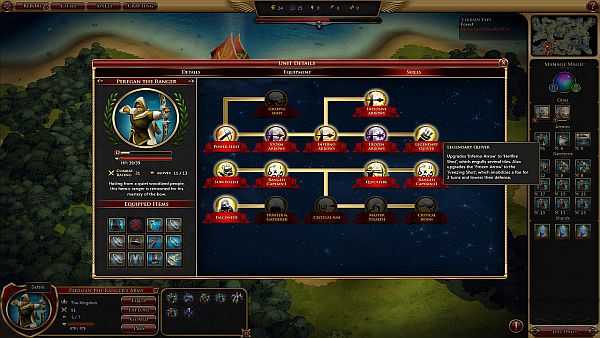
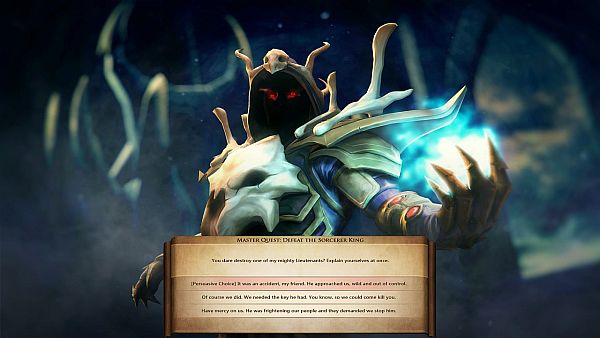

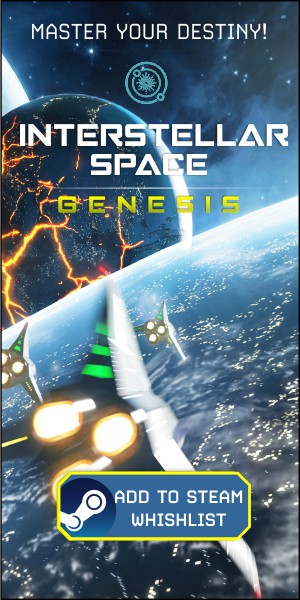
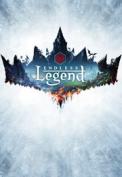

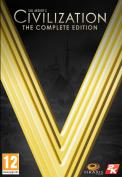


Against all the odds Stardock finally makes a polished game. And it’s one I have no interest in. I like open ended empire builders not a game that has the same ending every time. And quests? Quests suck.
A pity. If they did a Fallen Enchantress style game with this level of polish and nice artwork I’d be all over it in a New York minute. For now it’s back to ‘Endless Legend’.
“Grind-y”. “Repetitive”. “No challenge”. “Streamlined”. “Smaller Scale”. “Issues with writing”…
Those and about 10 other keywords aren’t exactly what I’m searching for in a 4x.
It’s a very good mod don’t get me wrong but I’m not going pay for this even for 5$.
Basically this review boils down to “it’s not a game suited for spacesector readers”. Good to know!
Stardock slickers are still trying to do what they are not destined for – a good PC game? Well, still there are people who’re ready to buy it… What a strange world!
Thanks for the review, Keith. It pretty much confirms what I’ve long suspected, which is that the game simply is not for me. Good write-up!
Not many comments on SK. Guess people are getting burnout over companies just repainting the same product and shipping it out as something new. From the review it appears to be that Stardock took the approach that removing less strategy decisions somehow made it appealing ? :o
It’s pretty but I want more 4X game in my 4X games. 4X sort of doesn’t do it for me.
So…How is it going with Space Sector?
Everything alright?
It’s still viable and you remain passionate about 4X games?
Maybe it’s just a slow news week..er..month?
Perhaps a follow up on some of the more promising 4X games still in production is due?
(*cough* M.O.R.E/Predestination/…Stars Beyond Reach?)
Just asking out of concern..and a bit worried. ,)
Don’t worry, we’re on top of everything we think you guys really want to know about.
Stars Beyond Reach was pushed and is now due to somewhere in October (last time I checked). Predestination is still following its course in E.A. and MORE doesn’t seem to have changed its state from site pre-orders (not moved to E.A. or switched to “beta” that I’m aware of).
XCOM 2 was also pushed to February next year.
There’s interviews planned and reviews on the way. Civilization: Beyond Earth – Rising Tide expansion will get its coverage soon. So will Satellite Reign. We plan on following Master of Orion: Conquer The Stars and Stellaris as closely as possible.
Now, we may have slowed down on the quantity side but we certainly aim to keep the quality as high as possible.
Thanks for the status update!
It’s nice to know that you are still keeping vigil over the 4X genre.
Definitely appreciate your concern and it is encouraging to hear people miss our content enough to say something! Thanks!
No problem!
I’ve found Space Sector’s (p)reviews to be honest, objective and aligned in my general direction. ,)
Not sure if its the kind of game that’s up SpaceSector’s alley but this game….
http://www.kingdinosaurgames.com/
Looks like its has the potential to be pretty awesome. No space but plenty of deep asymmetric strategy on an epic scale. I’m really looking forward to the release.
I backed the game on KS, you may also be interested in Thea The awakening. It’s in EA on steam yet, but essentially feature-complete, stable and playable.
http://store.steampowered.com/app/378720/
I believe this review is a bit on the generous side and I think that unknowingly comes because it’s a Stardock title and it’s nice to look at.
I completely disagree with;
Crafting and enchanting systems are well implemented, easy to use, and rewarding
I would say it’s the polar opposite of that. I don’t see where the review mentions the UI at all. I found it terrible. I supported them myself because it was Stardock but This game needed far more thought and another year of work.